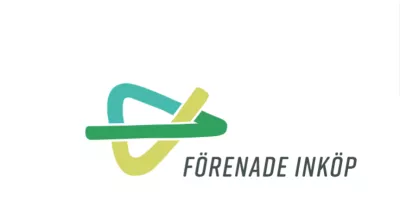General information
RDP Priority
- P3. Food chain and risk management
RDP Focus Area
- 3A: Agri-food chain integration & quality
RDP Measure
- M01: Knowledge transfer & information actions
Summary
The project responded to a need to develop a more sustainable food chain aiming to shorten the distance between consumers and producers. This was to be achieved by supporting existing purchasing associations and cooperatives and facilitating the start-up of new organisations.
The project was jointly run by the enterprise support organisation ‘Coompanion Sörmland’ and the new network ‘Foodshift’. The project participants were members of existing purchasing associations and people who intended to start purchasing associations.
The project activities included workshops, lectures and a physical meeting. At the same time, numerous outputs were produced, including a handbook aimed at supporting the start-up and operation of purchasing associations, and various communication materials that will assist interested individuals and organisations in future.
Results
- A network has been formed for people who are active or interested in purchasing associations and cooperatives. The project has created a Facebook group with 284 active members.
- Wide dissemination of information through a total of 11 recorded films.
- A number of start-ups have contacted the project for further information and support.
- The project was presented to Coompanion in Skåne (city of Malmö), which intends to use the material in relation to Land Traders.

Promoter
Coompanion Sörmland Ekonomisk förening
Funding
Total budget 729 768 (SEK)
EAFRD 356 127 (SEK)
National/Regional 373 641 (SEK)
Context
A new network called ‘Foodshift’ was proposed to help facilitate a shift within existing food systems to promote regenerative agriculture (an approach based on sustainable food and farming systems).
Although a number of purchasing associations and local cooperative food stores already exist across Sweden, their number and scale of operation was relatively small and collaboration between them was limited at the time. In response, the new Foodshift network designed a project to accelerate, expand and intensify the development of and collaboration between local network/purchasing associations.
Objectives
Overall, this ‘Unified Purchasing’ project sought to accelerate the development of local network/purchasing associations and build their capacities in supplying cities with local food produced in economic, social and environmentally sustainable ways. This would be achieved by:
- creating a more sustainable food chain and shortening distances between consumers and producers.
- increasing numbers of purchasing associations and local cooperative food stores in Sweden by supporting start-ups.
- supporting and consolidating existing associations by deepening their collaborations.
Activities
A business support organisation called ‘Coompanion Sörmland’ from south west Stockholm (promoting entrepreneurship, diversity of business ownership models, local development, and environmental and social responsibility):
- arranged workshops, lectures, webinars and a physical meeting to raise awareness and share peer-learning with existing purchasing associations.
- designed and developed a website incorporating a knowledge bank and a handbook aimed at supporting the start-up and running of a purchasing association.
- produced communication content, such as films and a Facebook group, to further support the dissemination of knowhow regarding the start-up and operation of a purchasing organisation promoting a collaborative approach.
The target audience and participants of the project were members of existing purchasing associations and people who intended to start new organisations.
Main results
- A project website including a knowledge bank and handbook for starting and running a purchasing association.
- An annual event networking local food cooperatives across Sweden. This attracted 16 participants and focused on peer-learning, exchanging experience, identifying ways to cooperate with each other to strengthen their organisations. It was a much appreciated weekend that created many new relationships and the idea of creating a national organisation promoting the development of local food cooperatives.
- One online start-up meeting involving eight people and three online open-space meetings with an average of five participants.
- Three webinars about starting, financing and running associations/activities.
- 11 informative films that were widely disseminated.
- Three videos presenting the premises and operations of different cooperatives/purchasing associations.
- Webinars that showcased two purchasing associations to four local producers.
- A number of start-ups in Bagarmossen, Båstad, Kivik, Dalarna, Röstånga and Gnesta have contacted the project for further information and support.
- One Facebook group (‘Kooperativa matbutiker, inköpsföreningar och producentkooperativ’) aimed at people who are active or interested in purchasing associations and cooperatives. The group has 284 active members.
- The project was presented to Coompanion in Skåne (city of Malmö), which will use the material in their new LEADER-funded project around Land Traders.
Key lessons and recommendations
- The project showed that knowledge exchange and learning between organisations such as food cooperatives and purchasing associations represents an ongoing need that should continue to be fostered.
- Many organisations have only limited awareness of others, their way of operating and how they could benefit from collaborating with each other. The project demonstrated the many benefits of sharing experiences through joint events and how this can lead to the generation of new ideas for improvement.
- The project also demonstrated the scope of physical gatherings to motivate learning and development. It also created far-reaching relationships that helped strengthen the entire cooperative sector and enabled new collaborations within the local and national food systems to flourish.
